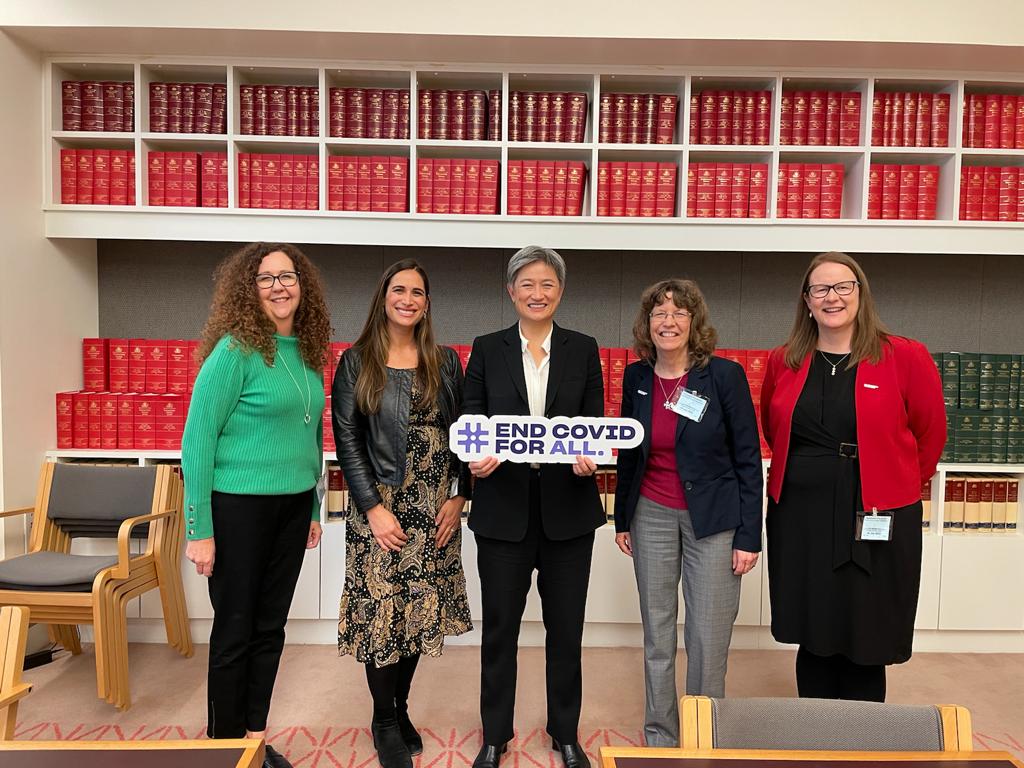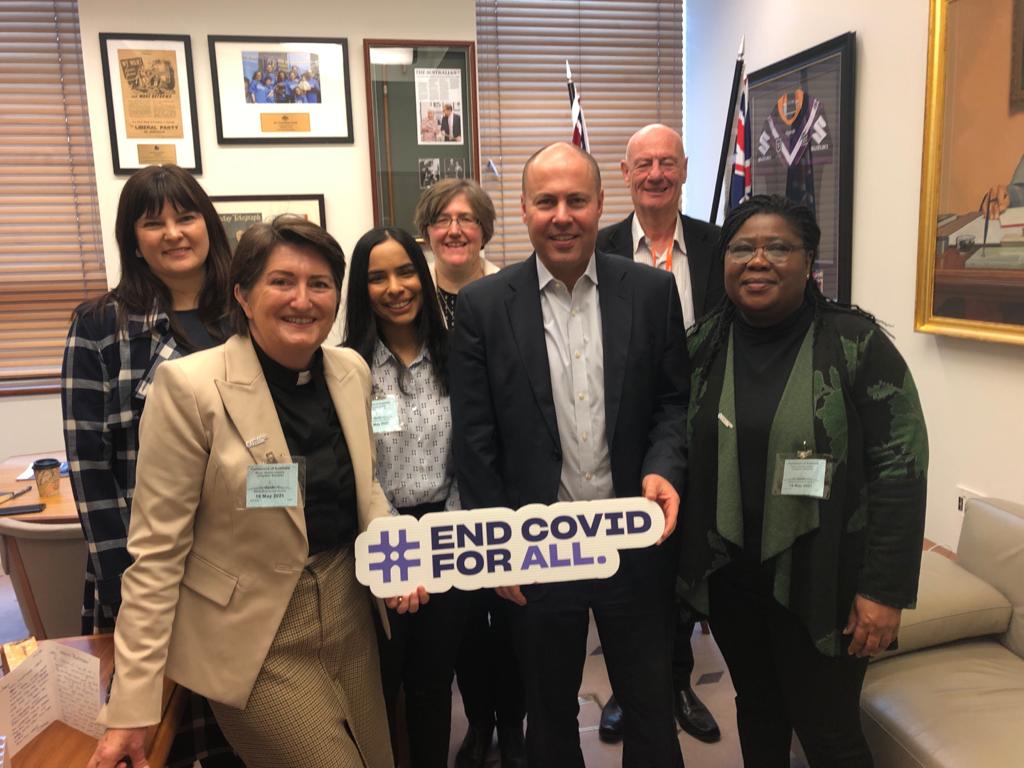40 leaders descended on Canberra this week to raise their voice for the world’s poor.
This week, Micah had the honour of hosting 40 incredible leaders for the Micah Women Leader’s Delegation.
This was our third delegation of its kind with a goal to create a high impact moment in order to influence our nation’s leaders on the significant roleAustralia has to play in addressing extreme poverty and injustice in our world.
This year included:
- 40 leaders
- 12 Church denominations and 24 Christian organisations represented
- 48 meetings with Politicians.
It was a true picture of ‘justice in action’ as these leaders met with politicians from all sides, to talk about global vaccine equity and the most urgent knock-on impacts of the pandemic for the world’s poor:
- Rising extreme poverty
- Famine, and
- Further marginalisation of vulnerable groups.
The delegation included representatives from every major denomination in Australia including: Anglican, Baptist, Catholic, Seventh-Day Adventist, Uniting Church, ACC, Hillsong, C3 Church, Church of Christ, and more.
The women were there to address what is increasingly a ‘two-track pandemic’, with richer countries having access to vaccines and poorer ones being left behind.

The Delegation with Minister for International Development and the Pacific, Zed Seselja.
“With worldwide deaths reaching over 10,000 per day, this pandemic is far from over, with the worst now hitting low and middle-income countries in South America and Asia, and fears rising at the possibility of a more contagious third-wave in the African continent.” said Rev Dr Melinda Cousins, Director of Ministries for the Baptist Churches of South Australia.
“At the same time, a vaccine access gap has rapidly opened up between richer and poorer nations, which is not only morally indefensible but an inequity that is perpetuating the pandemic.”
“As leaders, our collective voice can make a difference. And while our world is facing tremendous challenge, we are here today to display hopeful action – encouraging our politicians that Australia can continue to be a part of that solution at this devastating time.”
The leaders met with Senior Ministers and Members of Parliament from both major political parties, drawing their attention to the issue of global vaccine equity and the most urgent knock-on impacts of the pandemic on the world’s lower income nations: rising extreme poverty, famine, and the further marginalisation of vulnerable groups.

“Over 1 billion people were lifted out of extreme poverty during the last 20-years, however COVID-19 has thrown the brakes on this, and is now jamming it into reverse, with an additional 150 million people expected to be pushed into poverty by the end of 2021.
“An additional 10,000 children each month are dying as a result of COVID-19 related hunger.”
The delegation impressed upon the leaders they meet that the moral, health, and economic case all point towards Australia and other wealthy nations continuing to increase their efforts to help end COVID for all.
“We know this pandemic doesn’t end for anyone, until it ends for everyone. As the virus is allowed to mutate in lower income countries with low vaccination rates, it risks boomeranging back to Australia, jeopardising both our health security and economic recovery.
“We’re here to say to Australia’s politicians that whilst Australia has made a good start in responding to the needs of our neighbours, as the virus evolves, so too must our response.”
Despite the provision of significant temporary measures of over $1.3 billion in additional aid financing to help our neighbours respond and recover from the pandemic, Australia continues to tumble down the ‘global aid generosity rankings’ (which looks at a nation’s aid budget relative to its Gross National Income) – falling from 14th in 2015, to 21st in 2020 out of the 29 richest nations in the world.

Australia is leading the world in its comeback from the COVID-19 global pandemic and recession. And according to the Australian Bureau of Statistics, our economy has now recovered to be above pre-pandemic levels. Yet at a time when the world is facing an unprecedented crisis, Australia’s temporary boost in its aid budget does not equate to a sustained commitment to increased generosity.
Overall, it was an impactful day in Parliament, with many politicians engaging deeply on the issues we raised.
Micah is committed to continuing these important conversations to ensure they result in strong outcomes for the world’s poor.